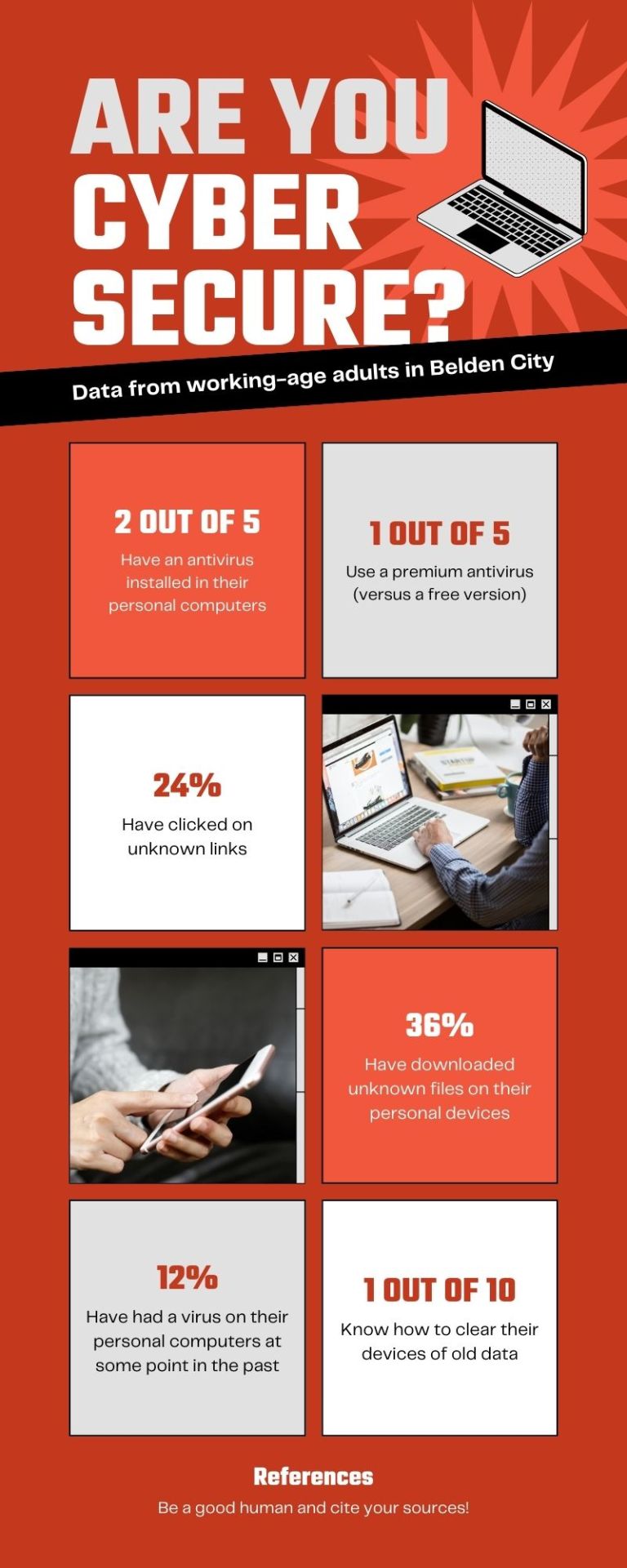Text

Ethical AI or Data Exploitation? Discover how AI sells your data behind the scenes and identify the ethical concerns linked to AI's data invasion. (Lee, S., 2021).
0 notes
Text

The AI revolution is here:
How Google and Facebook combat fake news and cyber threats, examine their AI-driven security initiatives, create new AI technologies, and incorporate them into their goods and services. (Chen, Y., 2022).
0 notes
Text

The Eyes and Ears of Social Media: How Platforms Continuously Monitor Our Digital Activity and How Social Media Keeps Tabs on Your Every Click? (Garcia, M., 2020).
1 note
·
View note
Text

AI consistently tracks, supervises, and follows us through many technologies, like facial recognition, GPS, public Wi-Fi and social media. Zuboff, S. (2019).
0 notes
Text

Your Digital Footprint Matters: Performing Ethical Digital Citizenship. Discover ways to have a positive impact in the online world. (Brown, J., 2019).
0 notes
Text

⌚ Your Health on Your Wrist:
Smartwatches Keep Tabs on Our Daily Lives by Obtaining and Analysing Our Personal Data. (Garcia, M., 2020)
0 notes
Text

Location-based advertisements can be helpful, but they can create privacy concerns. Learn how to control your data by managing your location settings. (Lee, S., 2021).
0 notes
Text

How Mobile Phones Track Our Every Move: The Digital Footprints We Leave. You can learn about the undiscovered aspect of your smartphone's location data. Chen, Y. (2022).
0 notes
Text

In this digital age, cybersecurity is everyone's responsibility for safeguarding our personal and professional data. Daniel J. Kuehl (2016).
0 notes
Text

The AI-Enhanced Guardian: How Artificial Intelligence is Transforming Cybersecurity Explore the potential of AI and digital defence. (Chen, Y., 2020).
0 notes
Text
BENEFITS OF BI IN VARIOUS SECTORS
Introduction
Business intelligence (BI) is essential for effective data management and utilization. BI is a collection of applications and software that analyses and presents data to improve decision-making. BI technologies provide current (real-time), historical, and predictive views of internally structured data of all departments within a company.
BI technologies manage massive volumes of data in order to help in the identification, advancement, and development of new strategic business opportunities. Businesses can gain a competitive market advantage and long-term profitability by identifying new opportunities and implementing an effective strategy based on insights.
BI analysts will access and analyze datasets using BI tools, software, or services, and then translate their findings into reports, summaries, dashboards, graphs, charts, or maps. Business intelligence (BI) tools are intended to boost efficiency and productivity in complex business environments.
As businesses face an ever-increasing flow of raw data and the challenges of gaining insights from vast amounts of data, the role of business intelligence continues to grow. Companies could use business intelligence software to gain a comprehensive view of their organization's network and translate it into insights about their business processes, leading to better and more strategic business decisions.
Different sectors which benefited most from BI-
Retail Industry-
Theft is one of the most serious issues plaguing the retail industry today. Specifically, goods are frequently misplaced between the time of order and the point of sale. That is why BI is such a prominent tool in preventing inventory loss with its data warehousing.
Stores can now keep a close eye on their supply chain and even know from where these leaks often occur, as well as which specific item is frequently stolen. As a result, stores can use these insights to develop new security measures and procedures to prevent similar incidents in the future and significantly reduce their overhead expenses.
Nowadays, retailers are shifting to simpler, more cooperative, and transparent business practices, supported by rapid decision-making processes. But apart from understanding and satisfying the customers' expectations and desires, their major concern is also on reducing lag time. This is only possible if their market strategies are adequately supported by Business Intelligence capabilities.
Telecom Industry-
Business intelligence is commonly used in the telecom industry. Huge volumes of data get analyzed every second, with little to no chance of error. In such a challenging environment, telecom operators must find innovative ways to improve quality assurance. BI ensures data processing as efficiently as possible by generating powerful insights from the data collected.
With this gained insight, telecom companies will emphasize predicting consumer demands and developing innovative customer retention tactics to gain a competitive advantage over their competitors.
Given that telecom operators serve millions of customers, gaining individual customer-level insights is crucial to provide the personalized service that customers expect these days. By turning raw data into consumable information, business intelligence will offer intelligence to operators.
As a result, telecom operators can launch targeted advertising campaigns, refine their pricing strategy, and build or introduce new products based on statistical consumer knowledge.
Fashion Industry-
The fashion industry is among one of the most challenging fields, the market is a highly competitive one with a variety of different competitors. The analytical tools used in business intelligence software help segregate businesses’ target markets from the entire population. It essentially assists companies in making intelligent choices.
We can thoroughly understand customers' requirements and expectations for colour, style, size, and other qualities of fashion products by implementing business intelligence. This convenient approach enables us to measure the performance of new products by simply analyzing the attributes they share with other products available in the market, leading to significant reductions in unsold inventory.
BI tools can also help the fashion industry accurately predict market demands, allowing them to design and manufacture their topmost-selling product for each season. Additionally, Business Intelligence software can enable us to determine customer trends, such as recent and past purchases, to develop optimized marketing and pricing strategies.
Pharmaceutical industry-
One of the most significant problems facing the pharmaceutical industry is minimizing risk and supplying products to patients without compromising on safety. While being manufactured, each product goes through various processes. Business intelligence allows you in monitoring all operations so that risks in the product and processes can be recognized easily and effectively.
Through the understanding of the manufacturing process, you can develop risk management strategies and increase the market value of the company's product. Business intelligence allows you to effectively analyze and predict all of your data and statistics.
It further allows you to predict seasonal changes in demand, which can help your marketing and sales departments perform better in revenue growth. It also assists you in tracking and monitoring clinical trials, R&D processes, and side effects of medicines that minimize product risks, and further supply customers with certified and approved drugs.
1 note
·
View note